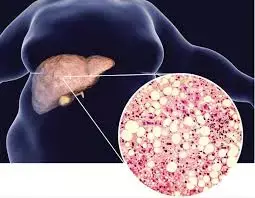- Home
- Medical news & Guidelines
- Anesthesiology
- Cardiology and CTVS
- Critical Care
- Dentistry
- Dermatology
- Diabetes and Endocrinology
- ENT
- Gastroenterology
- Medicine
- Nephrology
- Neurology
- Obstretics-Gynaecology
- Oncology
- Ophthalmology
- Orthopaedics
- Pediatrics-Neonatology
- Psychiatry
- Pulmonology
- Radiology
- Surgery
- Urology
- Laboratory Medicine
- Diet
- Nursing
- Paramedical
- Physiotherapy
- Health news
- Fact Check
- Bone Health Fact Check
- Brain Health Fact Check
- Cancer Related Fact Check
- Child Care Fact Check
- Dental and oral health fact check
- Diabetes and metabolic health fact check
- Diet and Nutrition Fact Check
- Eye and ENT Care Fact Check
- Fitness fact check
- Gut health fact check
- Heart health fact check
- Kidney health fact check
- Medical education fact check
- Men's health fact check
- Respiratory fact check
- Skin and hair care fact check
- Vaccine and Immunization fact check
- Women's health fact check
- AYUSH
- State News
- Andaman and Nicobar Islands
- Andhra Pradesh
- Arunachal Pradesh
- Assam
- Bihar
- Chandigarh
- Chattisgarh
- Dadra and Nagar Haveli
- Daman and Diu
- Delhi
- Goa
- Gujarat
- Haryana
- Himachal Pradesh
- Jammu & Kashmir
- Jharkhand
- Karnataka
- Kerala
- Ladakh
- Lakshadweep
- Madhya Pradesh
- Maharashtra
- Manipur
- Meghalaya
- Mizoram
- Nagaland
- Odisha
- Puducherry
- Punjab
- Rajasthan
- Sikkim
- Tamil Nadu
- Telangana
- Tripura
- Uttar Pradesh
- Uttrakhand
- West Bengal
- Medical Education
- Industry
Thiazolidinediones may significantly reduce risk of NAFLD, finds Study

Thiazolidinediones (TZDs) are beneficial for certain selected patients at risk of Non-Alcoholic Fatty Liver Disease (NAFLD), according to a study published in the Hepatology.
Thiazolidinediones (TZDs) and glucagon-like peptide-1 (GLP-1) receptor agonists are potential pharmacological treatment options for patients at risk of Non-Alcoholic Fatty Liver Disease (NAFLD). Therefore, a group of researchers examined the association between the risk of NAFLD and the use of TZDs and GLP-1 receptor agonists compared with the use of sulfonylureas (SUs) and insulins. Additionally, the researchers calculated the incidence of HCC in users of TZDs and GLP-1 receptor agonists.
The researchers conducted a population-based cohort study using primary care data from the Clinical Practice Research Datalink database (2007-2018). All patients aged ≥18 with a prescription of an oral glucose-lowering agent or GLP-1 receptor agonist were included. The first prescription defined the start of follow-up. The primary outcome was a new diagnosis of NAFLD. Cox proportional hazards regression was used to estimate HRs and 95% CIs of the primary outcome. Incidence rates of HCC were determined per 1,000 person-years for all exposures. The study identified 207,367 adults with a prescription for a glucose-lowering agent. The risk of NAFLD was lower in patients prescribed a TZD than in those prescribed an SU (adjusted HR [aHR], 0.32; 95% CI, 0.20-0.51). No difference in risk of NAFLD was observed comparing GLP-1 receptor agonist use with insulin use (aHR, 1.22; 95% CI, 0.91-1.63).
Thus, the researchers concluded that their study endorse the use of TZDs for selected patients at risk of NAFLD but do not support previous findings regarding the beneficial effect of GLP-1 receptor agonists. The low number of events in several subgroups may affect the generalizability of the current findings.
Reference:
Thiazolidinediones and Glucagon-Like Peptide-1 Receptor Agonists and the Risk of Nonalcoholic Fatty Liver Disease: A Cohort Study by Judith van Dalem et al. published in the Hepatology
Dr. Shravani Dali has completed her BDS from Pravara institute of medical sciences, loni. Following which she extensively worked in the healthcare sector for 2+ years. She has been actively involved in writing blogs in field of health and wellness. Currently she is pursuing her Masters of public health-health administration from Tata institute of social sciences. She can be contacted at editorial@medicaldialogues.in.
Dr Kamal Kant Kohli-MBBS, DTCD- a chest specialist with more than 30 years of practice and a flair for writing clinical articles, Dr Kamal Kant Kohli joined Medical Dialogues as a Chief Editor of Medical News. Besides writing articles, as an editor, he proofreads and verifies all the medical content published on Medical Dialogues including those coming from journals, studies,medical conferences,guidelines etc. Email: drkohli@medicaldialogues.in. Contact no. 011-43720751


